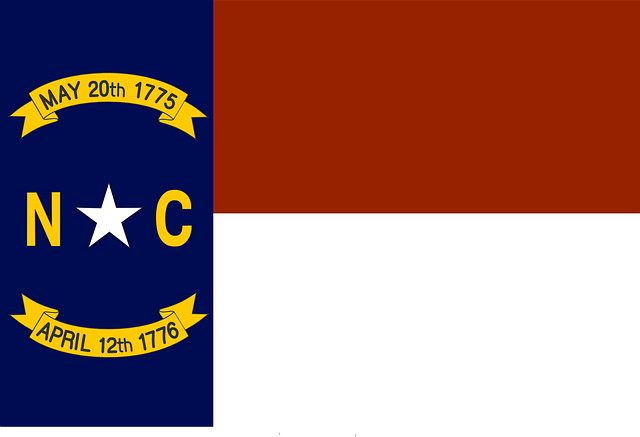International call centers operating in North Carolina must adhere to strict Do Not Call laws to avoid penalties and maintain customer trust. Key regulations include the North Carolina Telephone Consumer Protection Act and the Telemarketing Sales Rule (TSR). Businesses should obtain consent, provide clear opt-out options, and respect resident requests. Engaging Do Not Call Lawyer NC, attorneys or consulting with Do Not Call Law Firms NC is crucial for compliance, dispute resolution, and avoiding substantial fines. Best practices include thorough agent training, meticulous record-keeping, and leveraging advanced dialing systems integrated with "do not call" databases. Regular audits and seeking expert guidance from reputable professionals can help centers stay compliant and build strong client relationships in North Carolina.
“In the dynamic landscape of global business, international call centers must navigate intricate legal territories, particularly when operating within North Carolina’s stringent Do Not Call laws. This article delves into the regulatory environment, exploring how these laws impact overseas call center operations and offering strategic insights to ensure compliance. From a legal perspective, understanding these regulations is crucial for both domestic and international businesses, as evidenced by the increasing number of foreign companies seeking guidance from reputable Do not call lawyers NC and do not call attorneys NC. By employing effective strategies, businesses can avoid legal pitfalls and maintain customer satisfaction.”
Understanding North Carolina's Do Not Call Laws: A Legal Perspective
In North Carolina, understanding and adhering to the state’s Do Not Call laws is paramount for international call centers aiming to operate within its borders. These laws are designed to protect residents from unsolicited sales calls and give them control over their communication preferences. The primary legislation governing this area is the North Carolina Telephone Consumer Protection Act, which mirrors federal regulations like the Telemarketing Sales Rule (TSR).
International call centers must carefully navigate these laws to avoid penalties and maintain customer trust. This involves obtaining proper consent for telemarketing calls, providing clear opt-out mechanisms, and respecting resident requests to stop contacting them. Engaging a do not call lawyer NC or consulting with do not call attorneys NC can help ensure compliance, as legal experts can guide businesses on best practices and assist in resolving any disputes related to these regulations. Reputable do not call law firms NC offer specialized services to safeguard against legal repercussions and maintain ethical business conduct.
The Role of International Call Centers in Compliance
International call centers play a pivotal role in ensuring compliance with North Carolina’s strict Do Not Call laws. As global businesses often operate across jurisdictions, they must adhere to local regulations, especially those related to consumer privacy and protection. In North Carolina, consumers have the right to restrict unwanted telemarketing calls, and violators face severe consequences, including legal repercussions.
These call centers are responsible for implementing robust procedures to verify consumer consent, maintain accurate records, and honor Do Not Call requests promptly. They employ specialized software and training programs to monitor and track calls, ensuring compliance with state laws. By hiring experienced do not call lawyer NC or attorneys who specialize in these regulations, international companies can navigate the complexities of North Carolina’s legal framework, thereby protecting themselves from potential fines and maintaining positive relationships with local customers.
Strategies for Businesses: Avoiding Legal Troubles and Customer Unhappiness
Navigating North Carolina’s Do Not Call laws is paramount for international call centers to avoid legal troubles and maintain customer satisfaction. Businesses must implement robust strategies, such as comprehensive training for agents on compliance rules, meticulous record-keeping of consent and opt-out requests, and leveraging advanced dialing systems that integrate “do not call” databases.
Regular audits and reviews of calling procedures are essential to identify and rectify any deviations promptly. Engaging with reputable Do Not Call Lawyer NC, Do Not Call Attorney NC, or consulting with Do Not Call Law Firms NC can provide valuable guidance on staying compliant. By prioritizing customer preferences and legal adherence, international call centers can foster strong relationships with their North Carolina clientele while steering clear of potential penalties.
Legal Implications and Solutions for Non-Compliance
In North Carolina, violating the state’s Do Not Call laws can lead to significant legal repercussions. These regulations are designed to protect residents from unwanted telemarketing calls, and non-compliance can result in substantial fines for call centers. If a call center makes contact with a registered Do Not Call number, they may face lawsuits from affected individuals, as well as penalties imposed by the North Carolina Attorney General’s Office. To mitigate these risks, international call centers must employ robust strategies to ensure compliance.
One effective solution is to maintain an up-to-date, accurate database of customer preferences and Do Not Call registrations. This involves integrating advanced data management systems that verify numbers against state registries before any outbound calls are initiated. Additionally, hiring a reputable do not call lawyer NC or consulting with do not call attorneys NC can provide guidance on navigating these laws, helping to prevent costly mistakes. Many do not call law firms NC offer specialized services to safeguard businesses from legal implications and ensure they remain compliant in this regulated environment.






